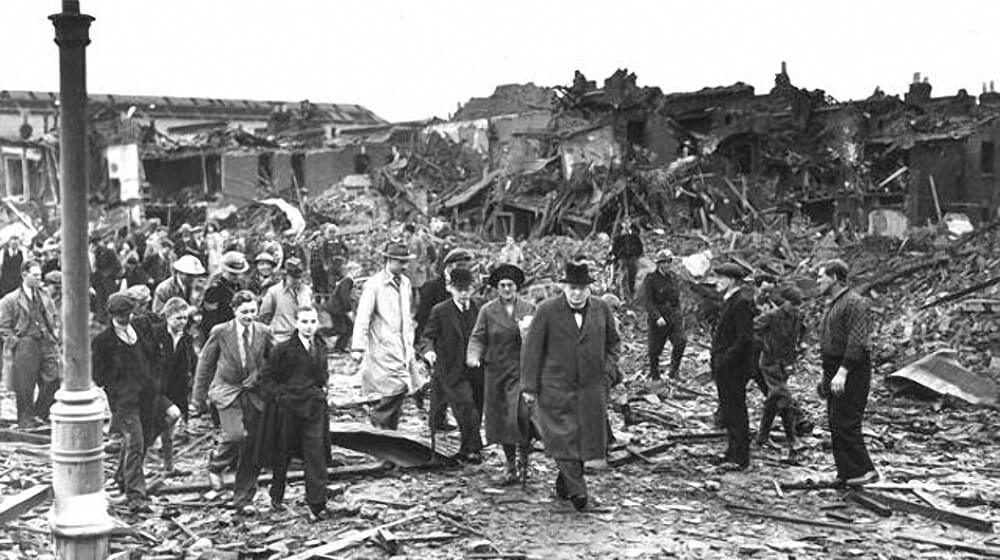I first posted the message below on this page more than five years ago … in this time of world turmoil and personal worries by too many, I feel it is time to bring this subject to your attention again! Even if you read way back then, please take a few minutes to read and digest again – then, think about who in your life, your community needs encouragement or a helping hand, AND take action!
Tim Moore, Managing Director of the Audience Development Group, a radio industry consulting organization … in mid-2019 posted this commentary as part of his Midweek Motivator series. As it’s a subject which I have some knowledge of and find a very inspiring story, and with his permission, I am re-printing here … after which I’ll share a few bits of information which I feel will provide some additional enlightenment for those not familiar with this piece of very relevant world history:
In a book titled The Psychology of Morale Canadian behaviorist J.T. McCurdy wrote about one of history’s most revealing events: the German bombing of London in 1940. Prior to the war British analysts feared that possibility, believing there was nothing England could do to stop it. Churchill described London as “the greatest target in the world,” eight million people slaughtered could be commonplace — perhaps up to a million dead. Others believed it might cost England the war.
To those of us born well after World War II, it’s a faded chapter from a time we didn’t know but the lessons learned are inestimable.
The September 1940 Attack on London
In September of 1940 the attack came, lasting for eight months with Luftwaffe bombers dropping tens of thousands of bombs. Forty thousand were killed, about that many injured. It was everything the British imagined except … there was no panic; every prediction about how Londoners would react turned out to be wrong! The panic never came. Psychiatric hospitals built on the edge of London were soon switched to military installations. As the assaults grew heavier the British leadership began to observe — to their astonishment — not just courage in the face of the attacks, but indifference. Morale rose; Londoners united with remarkable solidarity.

McCurdy studied and described the difference between “near and remote” misses.
“We are all not merely liable to fear, we are prone to being afraid of being afraid.”
Thus what most frightened Londoners at the beginning of the ordeal was that they feared the experience would be terrifying. German bombs fell like rain for months with millions of “remote misses.” Those who thought they would be terrified weren’t and came to understand their fears were exaggerated. They were fine!
“Courage is not something you already have that makes you brave, but later, when you’ve been through tough times and you’ve discovered they weren’t nearly as tough as you’d feared.”
Malcolm Gladwell
So turns out, the Germans made a catastrophic error. They bombed London because they thought it would destroy British courage. In fact it did the opposite! It created a city of millions of people who were more courageous than ever in their long history. The Germans who lost countless aircraft and air crews would have been better off not bombing London at all!
Acquired Courage
This account is the anatomy of “acquired courage.” In the end, London experienced 46,000 deaths and about that many injured, weighed against its population of eight million. Germany’s air force never recovered. The British people were steeled against the future and proved it, “holding the line until the allied countries which were half asleep were half ready” quipped Churchill.
No matter how much you worry, even fearing a potential setback or daunting task lying just ahead, it pays to acknowledge the sage advice about worry and fear: ten threats are coming down the road, nine of them will never reach us.
As Tim communicates in this last sentence: Nine times out of 10, all of your worry and fear is wasted energy as whatever it is that has you concerned will never impact you or your life in any way!
In the previous paragraph, in case you don’t recognize who British Prime Minister Winston Churchill is referencing when he speaks of Allies who “were half asleep were half ready,” of course it’s the United States — there were no other British allies left who had any capability of coming to the UK’s aid. While President Franklin Roosevelt was attempting to do what he could through the Lend-Lease program, members of the U. S. Congress — especially those who were still committed “isolationists” — were not yet buying in. Remember, this was the middle of 1940 … Congress did not approve our participation in what would soon be called the Second World War until 18 months later after the bombing of Pearl Harbor Hawaii on December 7th, 1941!
Prior to the eight months of ceaseless bombing of London — known as the London Blitz and occurring primarily during nighttime hours — the German Luftwaffe had begun bombing airfields and other targets in southern England in an effort to hinder and weaken Britain’s Royal Air Force in preparation for a ground invasion of Britain. However, the plan backfired … the pilots of the RAF out-maneuvered the Luftwaffe pilots and decimated the German fighter squadrons, which led to the change in tactics described in Tim’s description of the re-action by London’s citizens.
It also led to Prime Minister Churchill, speaking to Parliament on August 20, 1940, to make this statement, ” Never was so much owed by so many to so few.”
In closing, let me offer a few observations:
- All eight millions Londoners were in the same boat, united as one in facing the same danger.
- As my late wife Alicia noted long ago — whose father was very English — it’s an English trait to maintain a “stiff upper lip.”
- All those regular English citizens were encouraged by the fact that their leaders … along with Churchill, British King George VI and wife Queen Elizabeth (mother of present Queen Elizabeth II) remained steadfast in London throughout the siege and the War.
Finally, after being called to the office of Prime Minister on May 10th, 1940, just weeks before all this began … Winston Churchill told Parliament:
“I have nothing to offer but blood, toil, tears and sweat.”
And he delivered, earning the honor of becoming one of the great leaders in world history!
And, thank you Tim Moore for showing us the answer to fear is courage!
Image Credits: Churchil inspecting damage courtesy of BBC


